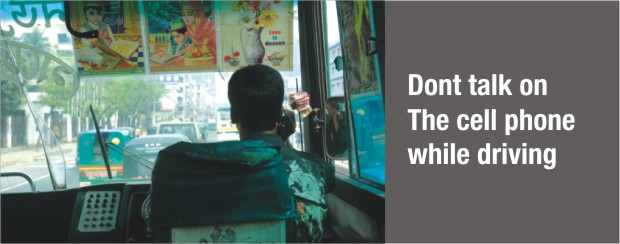Feature
The Cruelty that Life Conveys
Rubana Shifat
SHE looked at the bright lights adorned so delicately around the enormous rectangular building, unaware of the masses of people entering it. A nudge from her friend brought Sufi back to reality. She looked at where her friend was pointing, apparently stunned at what she saw. Sufi then witnessed a most wonderful scene. She set eyes on the most beautiful woman she had ever seen, gracefully clad in a black sari with jewelry decorating her neck and ears, emerging from a car. The lady had come to attend the wedding with the rest of her family. Sufi was so engrossed with all the glamour and beauty that she didn't even see her mother beckoning her from the other side of the street. Her mother seemed quite angry and said, “Hurry up now and gather up the rest of the cans in the bag or we'll be late.”
Sufi staggered ahead and bent down to pick up the metal cans. It was very cold and she was shivering, having only a ragged dress on. She had hoped that she would get a new woolen one for Eid but was sadly disappointed. Her mother was unable to get her salary on time.
When she was done, she walked back to where her mother was standing. Her mother smiled at her, a very sad smile as she believed that this was not the life her daughter deserved. Nevertheless, there was nothing to do about it. As they strode away, Sufi took one last glance at the wedding place, wishing that she could have been a part of it.
Their home was a long walk away and they were unable to go by rickshaw or bus. As they reached their slum, Sufi found herself comparing their way of life with those who lived in the city and was amazed at the difference. Here they worked a great deal more than those in the city but their return was comparatively far less. This disheartened her greatly. However there was no time to dawdle on her thoughts.
The melancholic and monotonous life went on. All of a sudden, one day, Sufi's mother fell seriously ill. They didn't even have enough money to visit the doctor and see what was wrong. With her mind so preoccupied with her mother, Sufi did not seem to be aware of anything occurring around her.
Sufi's mother got well after three weeks. One day, as Sufi helped her mother in work, they were abruptly stopped by a security guard at the site entrance. The whole site was blocked. That was when they learnt the horrifying truth. The employer was not continuing with the construction work. Sufi and her mother were no longer employed.
Neither of them could absorb this dreadful fact. The pain was agonizing, unbearable. How were they going to survive? Out of frustration and shock Sufi's mother released herself from her daughter's grip and darted across the street. She wanted to die. And she did. A speeding car took her life away.
Sufi watched her mother being crushed by the car and left dead on the road.
Sufi was petrified. Sufi walked slowly to the dead body. She refused to believe that this was her mother, her only source of comfort, her only family. She wanted her to get up and call her by her name, to love her like she did. She stared at the still body, lying before her feet, not even noticing the numerous cars sweeping by. The passengers in the passing cars didn't know why the girl was standing in the middle of the road, nor did they care. They only knew she was a mere poor child but the fact that she was lonely, with no one in the world for her, was only known by her. And it was so painful.

| 